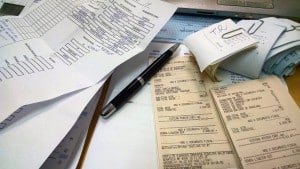 A small business owner is often so busy wearing different hats while running his or her business that record keeping gets neglected.
A small business owner is often so busy wearing different hats while running his or her business that record keeping gets neglected.
Small business’s lack of good records is a bonanza for the IRS. Keeping good records is essential to running an efficient business, as it proves where the business stands and where it is going. With good records, the business owner can keep track of what is owed, when to replenish inventory, and even recognize when they need to manage their cash.
Having poor records can be catastrophic for a small business if the IRS comes knocking for an audit. Many legitimate deductions may be lost if your records aren’t sufficient to substantiate the deductions you have taken. For example, subcontractors may be deemed as employees and therefore, subject the owner to additional taxes, penalties, and interest.
Moreover and most importantly, the IRS is allowed to determine your income by alternative means if they feel your records are inadequate. Oftentimes, shareholders of corporations mix their personal and business expenses together and with poor record keeping and substantiation, the IRS is then allowed to use an indirect valuation method to determine your income.
By using this indirect method, the IRS throws out your stated net income and determines your income based on your lifestyle. The IRS backs into your income by using forms that use your personal expenses to extrapolate what they believe to be your income. This method generally causes a high increase in taxes, penalties, and interest owed by the business owner. Quite often this method can bury the business owner, requiring them to pay taxes for many years.
Bottom line? Care should be taken in keeping great records or hiring a professional to do it for you.